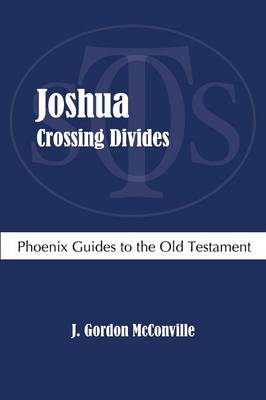The Two Horizons Old Testament Commentary
1 total work
The book of Joshua, with its memorable images of the crossing of the River Jordan and the miraculous conquest of the city of Jericho, plays an important part in the Old Testament's narrative and theology of God's promise and gift of the land of Canaan to Israel. Joshua himself succeeds Moses as the one responsible for leading the people in their covenantal commitment to keeping the Torah, as he guides them into their inheritance. In these ways it has made a contribution to sustaining faith and spirituality. Yet Joshua's disturbing narrative of divine warfare has also left a terrible legacy of authorizing violence in the name of religion. In this volume, Gordon McConville considers the various aspects of interpreting the book, including questions of its origins and occasion, its literary formation and its theology. He also looks squarely at the difficulties it poses to the modern reader, and the dangers of simplistic interpretations, especially when allied with power systems.
Yet, among the possible approaches to Joshua, certain readings suggest unexpected messages, and with the book's memorable central image of crossing a river in an escape from tyranny into new life, it can prompt fruitful reflection on other 'crossings'. Such reflection can contribute to the imaginative overcoming of the deepest human hostilities.
Yet, among the possible approaches to Joshua, certain readings suggest unexpected messages, and with the book's memorable central image of crossing a river in an escape from tyranny into new life, it can prompt fruitful reflection on other 'crossings'. Such reflection can contribute to the imaginative overcoming of the deepest human hostilities.
